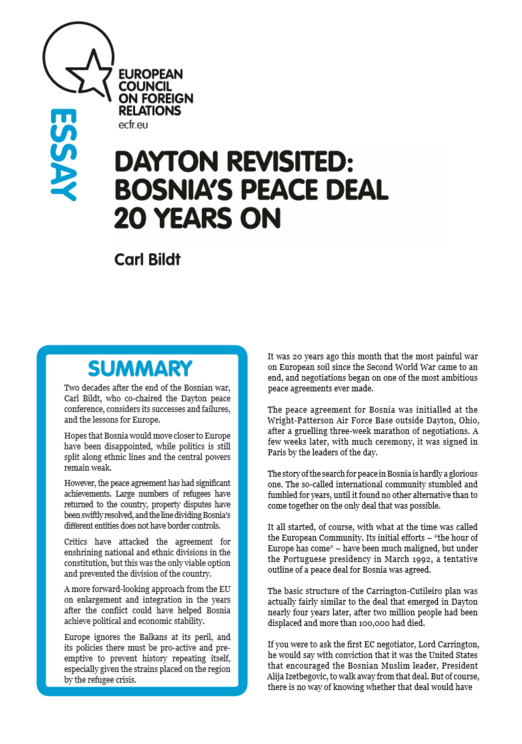Dayton revisited: Bosnia’s peace deal 20 years on
Two decades after the end of the Bosnian war Carl Bildt considers the successes and failures of Dayton
Two decades after the end of the Bosnian war, Carl Bildt, who co-chaired the Dayton peace conference, considers its successes and failures, and the lessons for Europe.
Hopes that Bosnia would move closer to Europe have been disappointed, while politics is still split along ethnic lines and the central powers remain weak. However, the peace agreement has had significant achievements. Large numbers of refugees have returned to the country, property disputes have been swiftly resolved, and the line dividing Bosnia’s different entities does not have border controls.
Critics have attacked the agreement for enshrining national and ethnic divisions in the constitution, but this was the only viable option and prevented the division of the country.
A more forward-looking approach from the EU on enlargement and integration in the years after the conflict could have helped Bosnia achieve political and economic stability. Europe ignores the Balkans at its peril, and its policies there must be pro-active and pre-emptive to prevent history repeating itself, especially given the strains placed on the region by the refugee crisis.
The European Council on Foreign Relations does not take collective positions. ECFR publications only represent the views of their individual authors.



